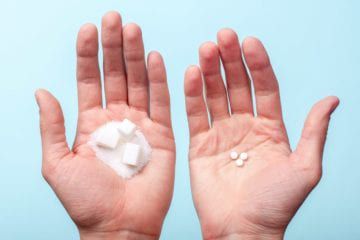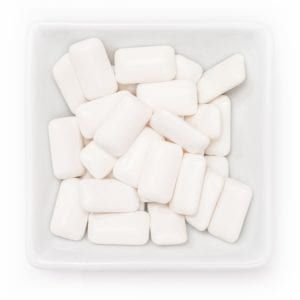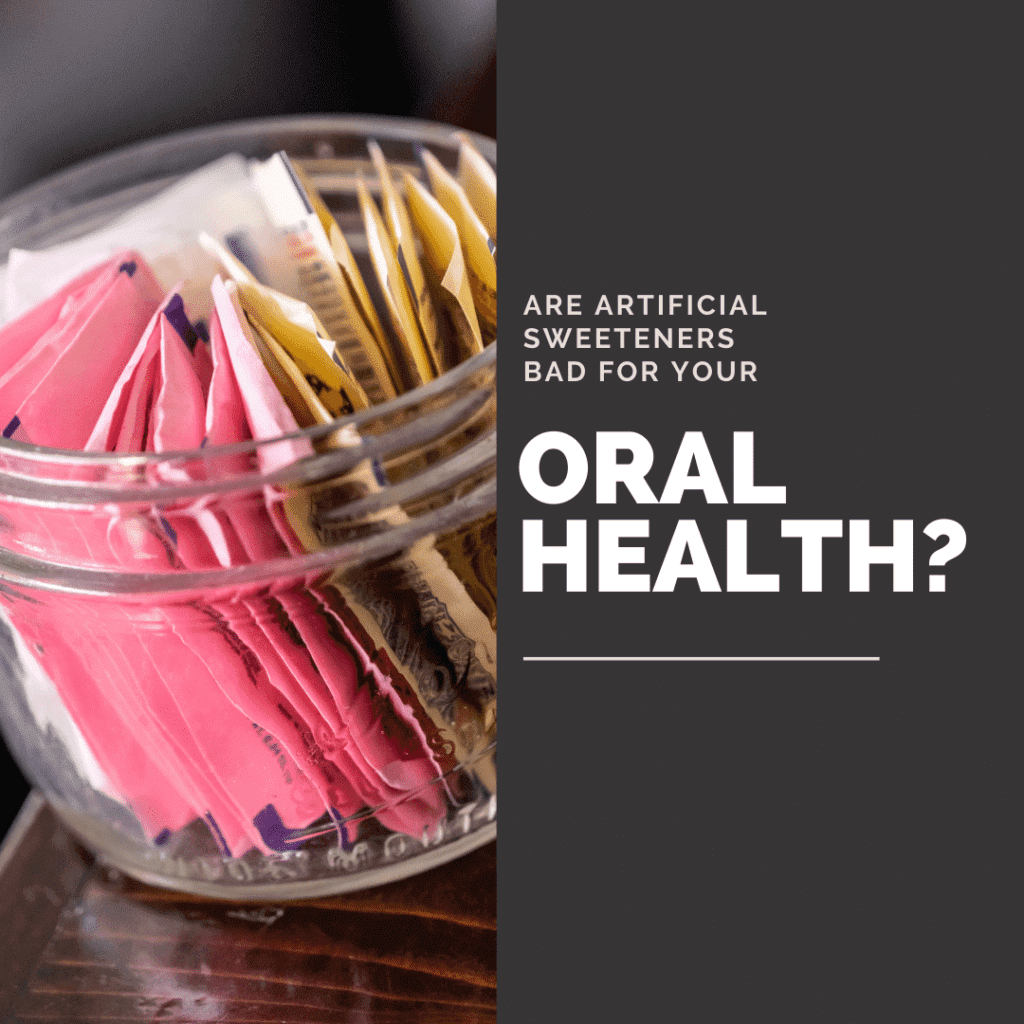Nowadays, there are a variety of foods that use artificial sweeteners in place of traditional sugar. Unlike traditional sugar, artificial sweeteners have little to no calories and don’t raise blood sugar levels. This makes them an ideal option for individuals trying to lose weight or those who have diabetes. Because of these benefits, many people also wonder how artificial sweeteners affect their oral health.
Most people know that sugar can pose a threat to their oral health, however not as many know why. You see, the bacteria responsible for tooth decay and gingivitis are living organisms that need to eat in order to survive and reproduce. Sucrose, or sugar, is their main food source meaning that they feed off it every time you eat something containing sugar. They then produce acidic waste that damages your tooth enamel. The more sugar consumed, the more bacteria survive and reproduce, which means more acid and more damage to your tooth enamel.
However, artificial sweeteners are not sugar, so are they safe for your teeth? To answer this question, let’s take a closer look at what artificial sweeteners are and how they can affect your oral health for better or for worse.

What are artificial sweeteners?
Artificial sweeteners are sugar substitutes that replicate the sweetness of sugar without actually being sugar. When compared to actual sugar, artificial sweeteners are much sweeter than actual sugar. This allows a small amount of sweetener to be used in order to sweeten foods while still allowing them to be marketed as “diet” or “sugar-free”. After all, artificial sweeteners don’t contain many calories and don’t raise blood sugar levels.
Artificial sweeteners are primarily used in baked goods, canned food, jams and jellies, dairy products, puddings, candy, and soft drinks or drink mixes. Here are some examples of artificial sweeteners:
- Saccharin (Sweet N Low, Sugar Twin)
- Aspartame (NutraSweet, Equal)
- Acesulfame Potassium (Sweet One, Swiss Sweet, Sunett)
- Sucralose (Splenda)
- Advantame
- Neotame (Newtame)
- Xylitol
How do artificial sweeteners affect my oral health?

While artificial sweeteners are not beneficial to your oral health, they do have one main benefit. That benefit is that they are not sugar, therefore bacteria cannot use them as a food source and, as a result, there will be no acidic waste product to damage your enamel. Additionally, one type of sweetener known as xylitol has actually been found to reduce the risk of tooth decay by increasing saliva production. Saliva helps to remove food debris from the mouth and also neutralizes the harmful acids that damage your enamel. Xylitol is found in sugarless gum and it is sometimes recommended to chew sugarless gum with xylitol after meals in order to increase salivation and clean your mouth.
Although bacteria cannot feed on artificial sweeteners and xylitol has been found to reduce the risk of tooth decay, they can still be damaging to your teeth. This is because many artificial sweeteners are used in coordination with acids in order to increase their flavor. In fact, fruit or citrus flavored items usually contain the highest amount of acids. Unfortunately, these acids will gradually erode your tooth enamel over time, making your teeth more susceptible to decay and damage.
For this reason, many dentists still encourage their patients to limit themselves on foods and beverages containing artificial sweeteners. As always, you will also want to be sure to practice proper oral hygiene, especially after consuming foods and beverages with artificial sweeteners. In order to prevent damaging your enamel, it is recommended to wait at least 30 minutes after you have consumed something with artificial sweeteners before brushing, flossing, or chewing sugarless gum.




